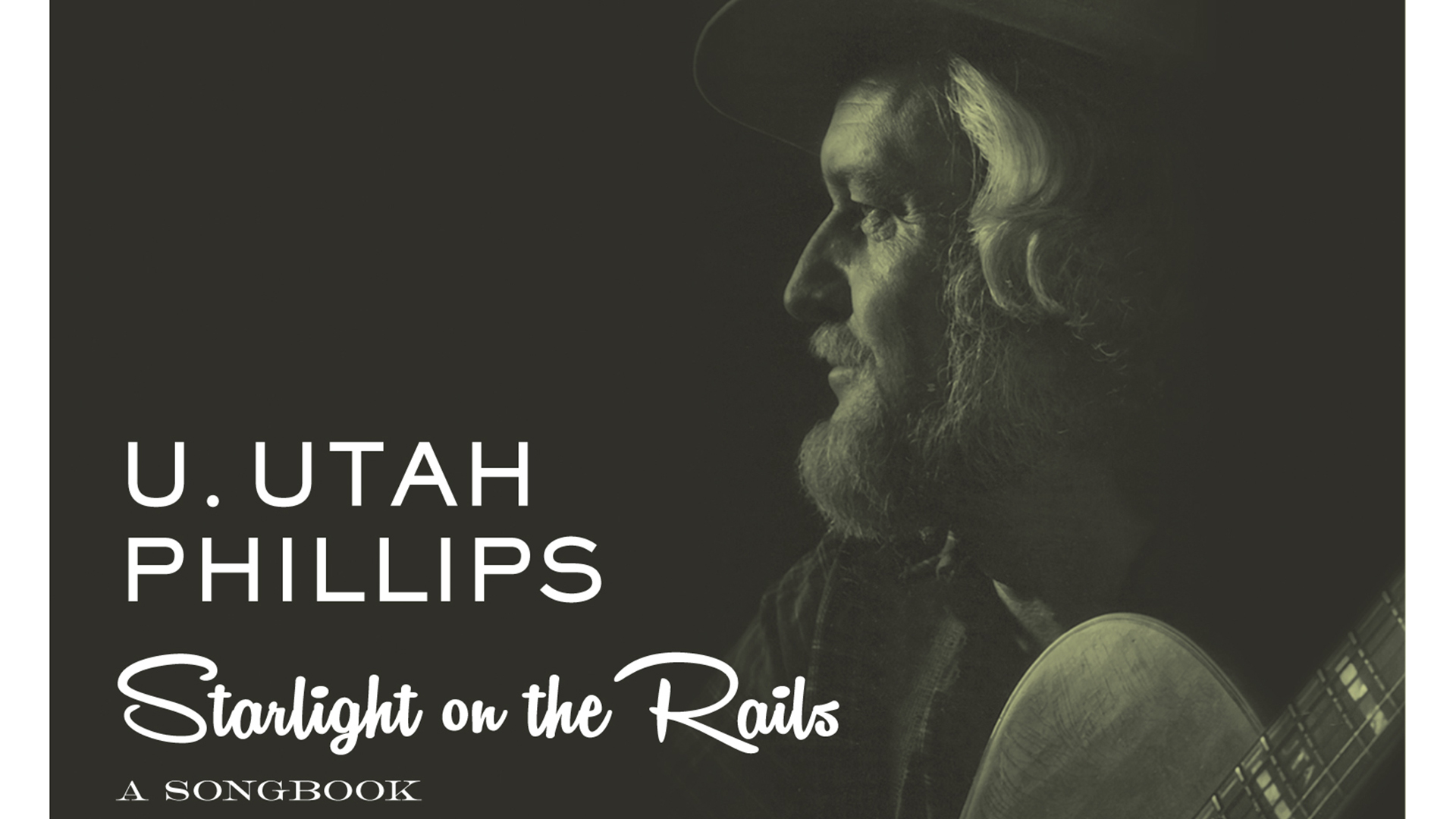By Saul Broudy
Journal of American Folklore
American Folklore Society
Volume 120, Number 475, Winter 2007 pp. 79-82
Bruce “U. Utah” Phillips is one of a kind—a storyteller, union organizer, philosopher, songwriter, performer, and Renaissance man. I first met him when he traveled from Utah in 1964 to attend the Galax (Virginia) Fiddlers’ Convention and to visit the Doc Watson family, among others. I hitched a ride with him and some of his Utah Valley Boys and several days later took my leave at Nashville’s Ryman Auditorium, home of the Grand Ole Opry. It was not until several years later that I heard his name again, when Idaho folksinger Rosalie Sorrels began singing his songs in the East.
When Phillips moved east in 1969 to try a career as a folksinger, my University of Pennsylvania professor, Dr. Kenneth Goldstein, and I went to hear him perform. Kenny had recorded Phillips in Salt Lake City in 1961 for the Prestige record label (No One Knows Me, PR-13040). It was he who suggested that I do my dissertation on Phillips’s performances (The Effect of Performer-Audience Interaction on Performance Strategies: “Moose-Turd Pie” in Context, 1982). Thus began my two-year stint on the road as Phillips’s harmonica player and my familiarity with his song repertoire.
There is certainly no dearth of opportunity to hear Phillips’s recorded material. There are, for example, his early Philo Records albums (some combined and reissued on the Rounder CD The Telling Takes Me Home); his several Red House CDs including The Moscow Hold, which showcases his storytelling; and his recordings of “Wobbly” (Industrial Workers of the World, or IWW) songs such as “We Have Fed You All for a Thousand Years” (on Philo); and contributions [End Page 79] to Rebel Voices (Flying Fish) and Smithsonian Folkways’s Don’t Mourn, Organize: Songs of Labor Songwriter Joe Hill.
There are his unusual collaborations with Ani DiFranco (Righteous Babe Records), with “Spider John” Koerner and “Ramblin’ Jack” Elliott (Legends of Folk, a live recording on Red House), and with Rosalie Sorrels (The Long Memory on Red House). For a more complete list of recordings and their content, I suggest viewing his Web site at http://www.utahphillips.org/tapecd.html. Phillips even published a small songbook entitled Starlight on the Rails and Other Songs (Wooden Shoe) in 1973, in which he presents the words and music to forty-four of his songs. Twenty of these are on the CD set, and one could purchase the Wooden Shoe songbook at http://www.utahphillips.org/songbook/index.html to get the lyrics or view them at that Web site. Starlight on the Rails: A Songbook is an important complement to all of the above. It reframes his material in the form of a songwriter’s diary and allows Phillips to reflect on how the songs functioned for him and what they have meant to him over the course of his life.
These days Phillips’s songs, storytelling, and general presence have become legendary among folk music aficionados, in countercultural circles, and wherever things need “shaking up.” It is about time, now that he is over seventy, that a major compilation of his songs be available to the public. Taken from recordings made over his entire career, from early performances at the Smithsonian’s Festival of American Folklife to later ones at clubs, union halls, and festivals, this CD set reflects Phillips’s life goals and philosophy. It is a kind of “nonsequential diary of years spent ‘banging about,'” as he says in his introductory track to the CD. His stories, whether prose or poetry, are drawn from his experiences with such folks as hoboes, miners, and union organizers, and from his life on the road. That is what this collection is all about: decades of a man’s life and his understanding of history reflected in narratives and concentrated into songs.
Phillips thinks of himself as a “song learner” and “songmaker,” and he regards his songmaking as an effort shared by both himself and…






